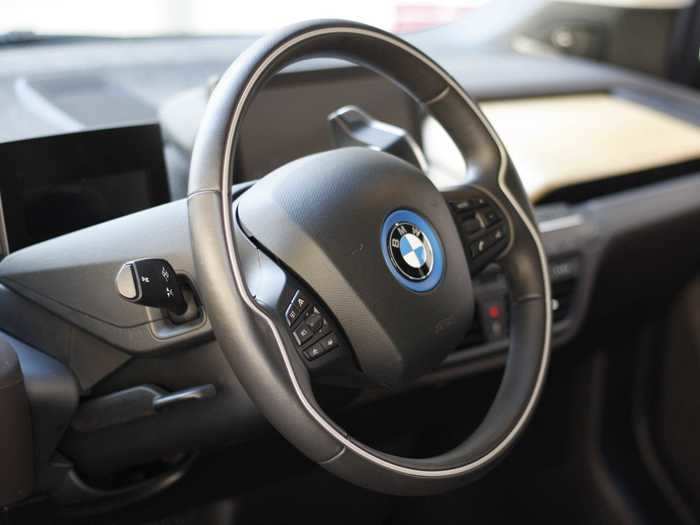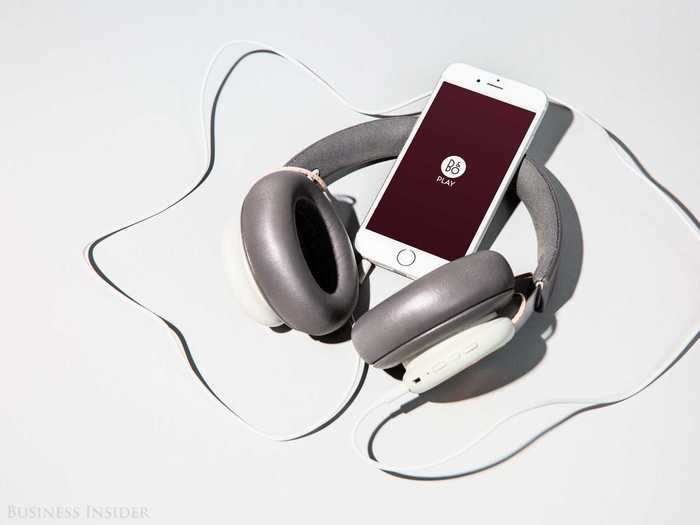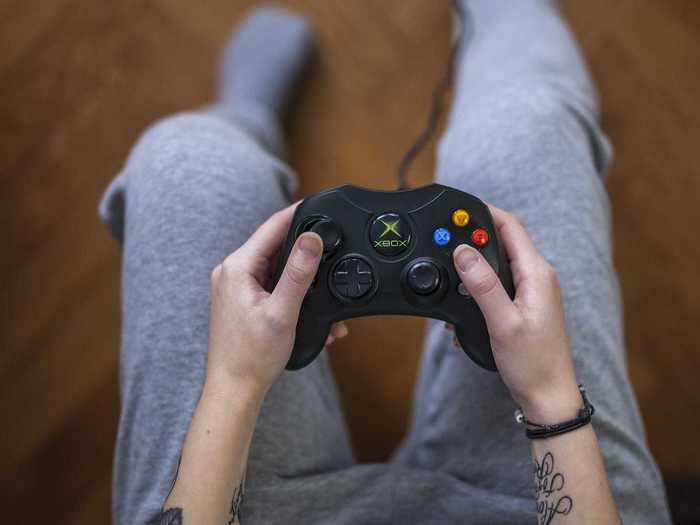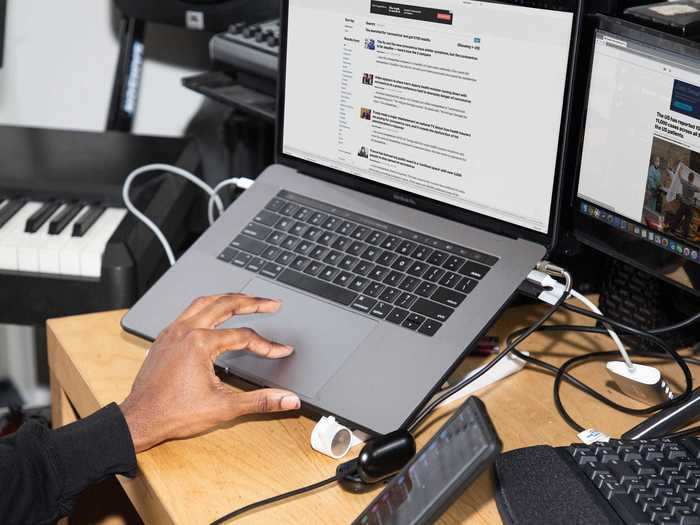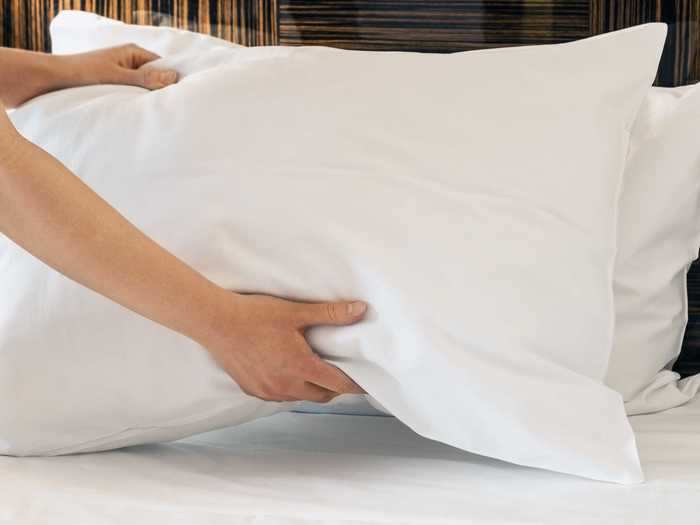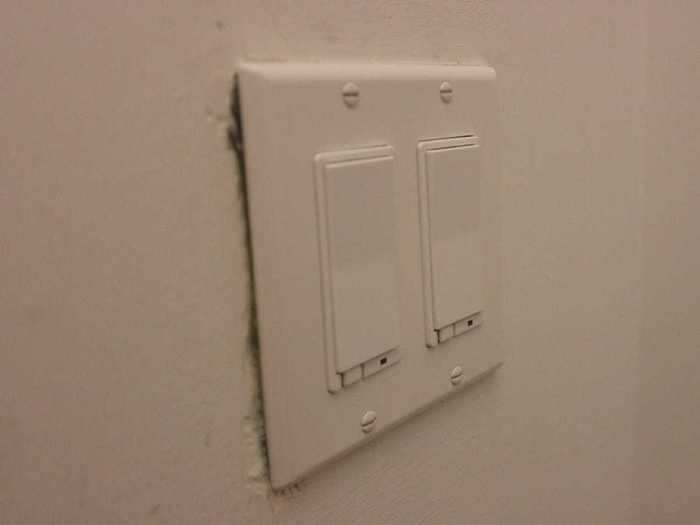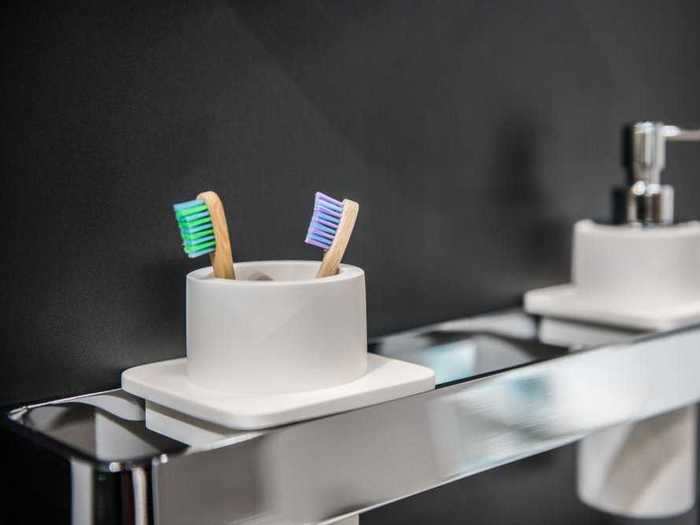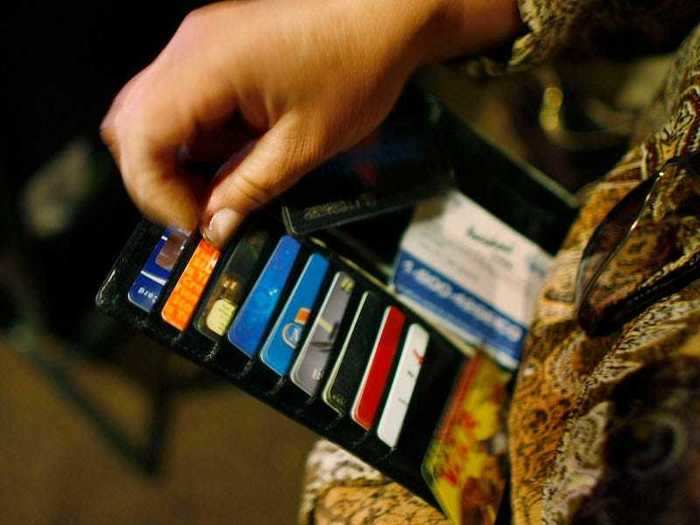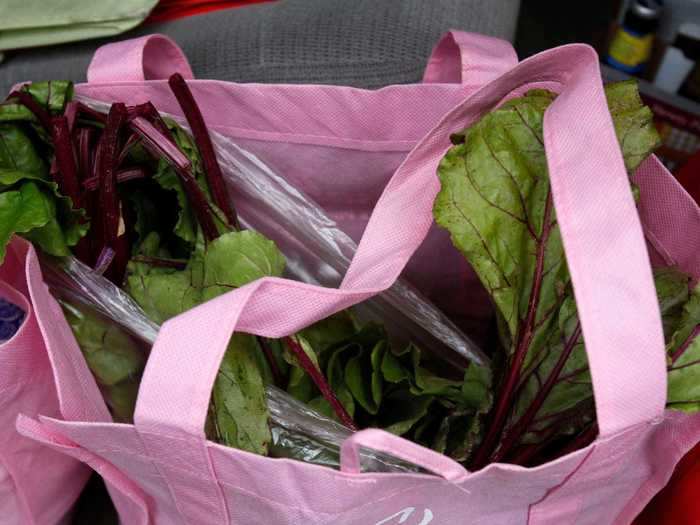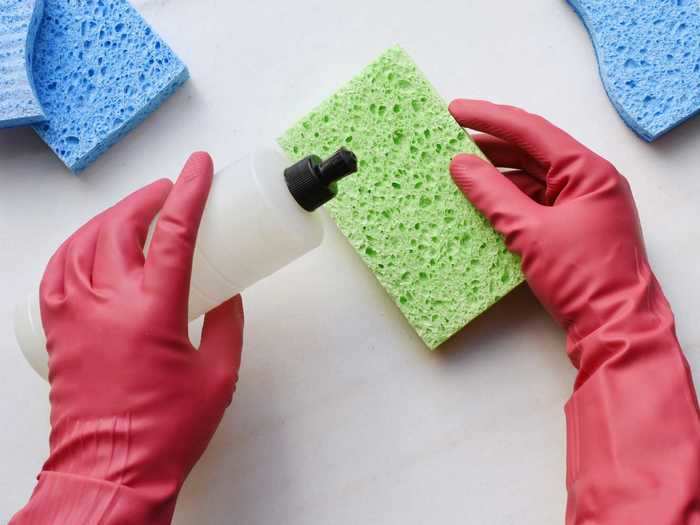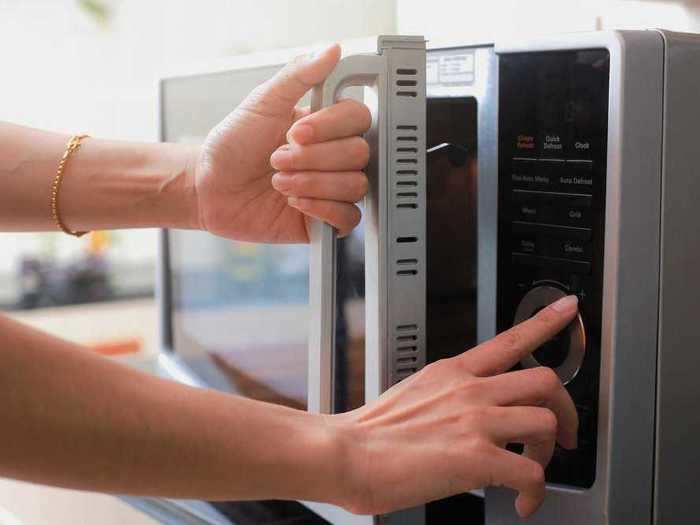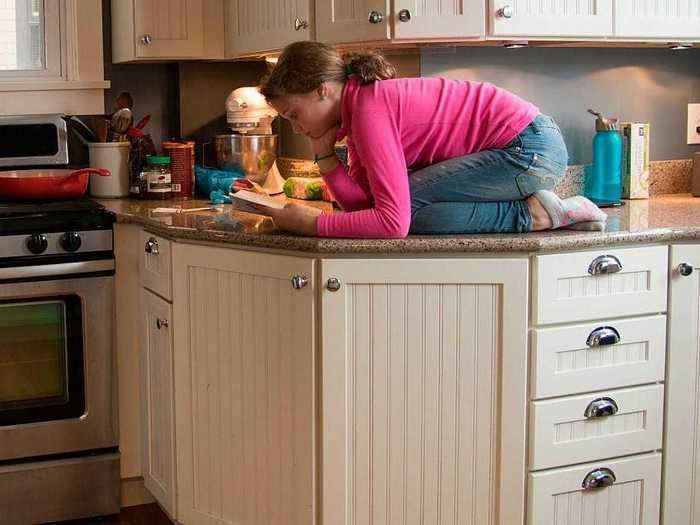If you wear headphones daily, you should probably start cleaning them.Brad Barket/Stringer/Getty Images for DJ D-Nice
- While you may be routinely doing laundry and wiping down countertops, germs also collect in a variety of odd nooks around the house.
- When cleaning, a good rule of thumb is to wipe down all high-touch objects around the house and always read the instructions on the label of your cleaning solution.
- Your credit cards, steering wheel, tea kettle, and toothbrush holder shouldn't be ignored when you're cleaning.
- Visit Insider's homepage for more stories.
Many of us have a standard cleaning routine around the house. However, there are plenty of unexpected places where dirt and germs may be lurking.
Insider spoke with Dr. Andrew Janowski, instructor of pediatric infectious diseases at Washington University School of Medicine and St Louis Children's Hospital, who advised paying close attention to high-touch items you use daily, including remote controls, laptops, and any objects exposed to water, which is a common living space for bacteria.
Disinfecting these under-cleaned objects can have other benefits too. Cleaning out old crumbs, dirt, and grease keeps these items in good condition and boosts their lifespan.
Keep reading to discover items and spots around your house you should incorporate into your cleaning routine.
Read the original article on
Insider
Outside of your home, your car also has high-touch surfaces, including the steering wheel and door handles.
All the knobs, buttons, and handles in your car should be cleaned from time to time.
Karyne Levy/Business Insider
If you have driven your car recently, you should clean all the places you touched, just as you would in your home.
Consumer Reports says "many of the same household cleaners that kill coronaviruses on hard surfaces at home can also clean a car without damaging its interior." Jeff Stout, executive director global innovation at Yanfeng Automotive Interiors, added, "For the most part, nearly every interior surface of a vehicle can be cleaned with isopropyl alcohol," which aligns with CDC guidelines.
You'd be surprised by how much bacteria your headphones are harboring.
If you workout with headphones, you should definitely be cleaning them.
Hollis Johnson
When Business Insider sent in 22 pairs of earbuds to Columbia's microbiology lab, they found that two samples had grown yeast and one sample had grown a type of bacteria associated with dirt.
Now more than ever, it is important to clean off all the technology you cycle through daily, including the carrying case. Using small amounts of isopropyl alcohol on the case will do the trick.
Beyond disinfecting, Dr. Janowski recommends cutting out sharing, saying he "[tries] to make sure I'm the only one who touches them, and if I'm sharing in public, I ask others to wash their hands or use hand sanitizer before using."
Video game controllers are also germ hubs.
Think of how often you touch the remote and then touch your face.
chrisjohnsson/Shutterstock
Video game equipment is another piece of technology that you may be forgetting about.
The New York Times recommends you "grab a wipe and give the one you use every day a good wipe down, and try to make it part of your cleaning routine."
The TV remote is another communal item that accumulates tons of filth.
Think of all the loose crumbs stuck in between those buttons.
Dean Drobot/Shutterstock
Good Housekeeping recommends you first remove the batteries. "Then, dampen a cloth with a cleaning agent and go over the entire remote, paying special attention to the spaces between the buttons." A cotton swab can be used for particularly tight spaces.
Laptops are used constantly throughout the day and sometimes shared between friends and family, making them high-touch points that need to be cleaned thoroughly.
Disinfecting the keyboard, screen, mouse, and cables is important to keeping your desk space clean.
Crystal Cox/Insider
Dr. Janowski says he tries to "avoid using my devices in areas that I could be in close proximity to others who might cough and sneeze. If my hands have been in contact with potentially contaminated surfaces, I wash my hands before touching my electronic devices."
If you are eating next to your laptop, it is also a good idea to wash your hands after touching your computer, limiting the chance of germs getting into your mouth.
To clean your laptop, you should start with your keyboard. As Business Insider previously reported, first power off your laptop completely, then "use the disinfecting wipes to clean the tops of the keyboard keys, using the light pressure of your palm. Remember, the goal is not to soak your keyboard with the disinfectant, but rather to give it a quick once-over, so you may want to squeeze the wipes out beforehand to reduce moisture."
Considering how often we use our phones, they deserve to be the top priority when cleaning.
Apple has step-by-step disinfecting instructions available online.
Crystal Cox/Business Insider
Washing your pillows is usually an afterthought when cleaning the bedroom, but they are actually a hub for dust, drool, and dead skin.
Replacing the pillowcase isn't always enough.
Shutterstock
While you probably wash your sheets and swap out pillowcases, you should also think about washing your pillows themselves. Most pillows are designed to be machine washable, and putting them in the washing machine with care can rid the pillows of all the accumulated filth, including "dirt, oils, saliva, sweat, bacteria, mold, and even fungi," says Michelle Fishberg, CEO and co-founder of Slumbr, a sleep-wellness company.
Light switches are also constantly being touched.
Don't forget about the light switch in your bathroom or bedroom.
Steve Kovach/Business Insider
Maybe you already clean the switches in your kitchen or hallway, but bathrooms are also high-traffic places.
Dr. Janowski warns that "high-touch items in the home can even harbor antibiotic-resistant bacteria," and it is extra important to disinfect light switches thoroughly.
Good Housekeeping recommends, "with a disinfecting wipe or a cotton ball dampened with 70% isopropyl alcohol and well squeezed out, swab all sides of the switch and backplate. Again, be careful that no liquid gets inside. Allow it to air dry."
It's important to clean even the small items in your bathroom, especially your toothbrush and its holder.
Swap out your toothbrush for a fresh replacement after you are sick.
Nick Starichenko/Shutterstock
Although it is unsettling to think about, Good Housekeeping raises an important point: "Make sure family members close the toilet lid before flushing to contain any spray that can land on exposed toothbrushes and surfaces."
Good Housekeeping also advises swapping your toothbrush for a fresh replacement every three months. But beyond the brush itself, you also need to remember to clean around the holder. Usually, the cleaning process is as easy as just washing the holder in warm, soapy water and allowing it time to dry.
If you are going out to purchase groceries or other supplies, you should be cleaning the cards in your wallet.
Your credit cards are filthy and take less than a minute to clean.
Joe Raedle/Getty
A study from the London School of Hygiene & Tropical Medicine and Queen Mary, University of London found that 8% of credit cards showed gross contamination "where the levels of bacteria detected were equal to that you would expect to find in a dirty toilet bowl."
Reader's Digest recommends you "wipe the card with a damp cloth or anti-bacterial wipe, then gently scrub the magnetic strip with an eraser."
It's important to be mindful of the surfaces of your groceries, including reusable bags and packaged, frozen foods.
You should routinely put your reusable bags in the washing machine.
David Duprey/AP
Dr. Janowski has tweaked his cleaning habits following the coronavirus outbreak.
"Items in the refrigerator or freezer, I will still pay special attention to since the colder temperatures would allow the virus to persist longer on them," he said. "So often my approach is similar to how I would handle raw chicken, but in this case, it is the food container that is contaminated. So I will open the food container, place the food on a clean dish, throw away the food packaging, and then wash my hands."
If you use reusable bags when shopping, it's important to wipe them down once you bring them indoors. According to Better Home and Garden, "the bags can start to smell, collect stains, and become a breeding ground for bacteria and mold if not cleaned regularly. Wash fabric grocery bags in your laundry machine, or invest in plastic bags that can easily be wiped down."
Your sponge sitting by the kitchen sink should be replaced about once a week.
After using your sponge for about a week, only use it for wiping down countertops.
Getty Images
Dr. Janowski warns that "objects exposed to water are more likely to be contaminated with bacteria."
According to Business Insider, "the warm, moist environment inside a sponge is a delightful spot for bacteria to grow."
You can bleach your sponge using 10% household bleach and 90% water solution to disinfect it, and after about a week of use, only use the sponge for wiping countertops.
It's also important to keep in mind that after a sponge comes in contact with raw meat or vegetables, it should be bleached or replaced.
After disinfecting the handles and knobs, be sure to also wipe down the buttons on your stove, microwave, and other common kitchen appliances.
Your microwave knobs should be cleaned.
Zynatis/Shutterstock
The buttons on your toaster, microwave, stove, and oven should also be routinely cleaned.
Dr. Janowski recommends reading your cleaning solution's instructions to retain its highest effect. His one rule of thumb is "to allow for the longest contact time possible before wiping off the solution. For sprays, it is more important to spray the surface, rather than spray into a towel and then wipe."
The handles on your refrigerator, freezer, and cabinets should be routinely sanitized.
Wiping down the handles on your cabinet drawers can get rid of all the grease and dried crumbs.
Education Images/Universal Images Group via Getty Images
When cleaning your kitchen, take time to think about all the knobs and handles you touch on a daily basis.
Your refrigerator and freezer handles, as well as all the handles on your cabinets and drawers, should be incorporated into your cleaning routine.
Good Housekeeping recommends "wiping away any grease or grime from the handles with soapy water, then rinse and dry. Kill bacteria and germs with Microban 24; let it sit for five minutes, then buff with a microfiber cloth to shine."

